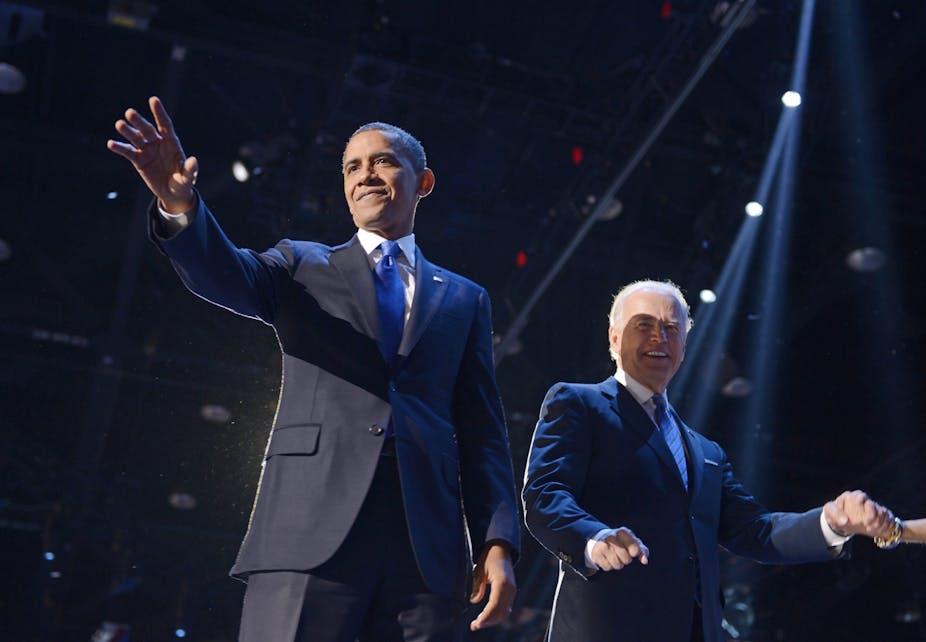Barack Obama’s re-election won’t generate the same exuberance as 2008. The lofty rhetoric of “Hope” and “Change” has been replaced by the much more sombre message of “Forward”.
And while four years ago the senator from Illinois vowed to change the way Washington works, most Americans won’t be holding their breath this time around after the bitter partisanship that has plagued US politics. But the President’s victory on Tuesday over Republican challenger Mitt Romney is important for a much more tangible reason: it means the preservation and implementation of the most far-reaching domestic policy accomplishments of any president since at least Lyndon Johnson.
Despite complaints that he’s failed to live up to expectations Obama has had an extremely eventful and productive first term in office. And, for better or worse, Republicans campaigned on a promise to repeal two of his biggest pieces of legislation: The Dodd-Frank Wall Street Reform and the Patient Protection and Affordable Care Act. Overseeing the implementation of the latter will by a central task of Obama’s second term and the law will almost certainly become the defining legacy of his presidency. It’s an enormous achievement for the progresive cause.
Given the striking ideological divide between the two parties the outcome of this election was extremely consequential, in large part because of the major reforms proposed by the Romney/Ryan campaign. But at this point, we’re probably less interested in those sorts of counterfactuals and more curious as to what the second half of the Obama presidency will look like.
It’s likely that the biggest political moment for the president will occur within the next several months. Unable to find significant common ground on a comprehensive budget deal, the President and the Republican-controlled House of Representatives have continually kicked the can down the road. But time is quickly running out. On January 1 the extension of the Bush tax cuts and payroll tax cuts is set to expire at the same time that large-scale cuts to discretionary spending-primarily military spending-go into effect.
Obama is naturally drawn to compromise and may well try to do whatever possible to reach a grand bargain in the coming months. On the other hand, the terms of the fiscal cliff provides the President with some leverage. Once tax rates go up any budget deal could then be framed as cutting taxes instead of raising them. Democrats would automatically have the higher taxes on the upper class they’ve been calling for and then could subsequently reduce taxes for everyone else. Many liberals want Obama to make full use of this advantage and take an especially hardline approach in negotiations.
How Obama plays his hand will influence historical judgements of his presidential temperament and also be critical in shaping the long-term fiscal path of the country.
Other large-scale changes will be harder to come by. Unlike the first two years of his term, Obama won’t have the advantage of large Democratic majorities in Congress. As such, new legislation will be hard fought and more often then not narrow in scope.

Significant reform is most likely on immigration. There’s agreement between the two parties on some of the key issues and Republican leaders realise that they need to take a softer tone in order to regain credibility with Latino voters. While there’s been no serious talks between the two parties recently I wouldn’t be surprised to see a deal reached sometime in the next four years.
Two years ago the country voiced their clear displeasure with the President and his party in the 2010 midterm elections. Yesterday, they offered a fairly firm re-endorsment of the man they elected to turn the country around. And as an added bonus, Obama will reap the political benefits of presiding over an improving - if still fragile - economy.
No, this doesn’t have quite the same feel as 2008, but it’s probably just as important.

